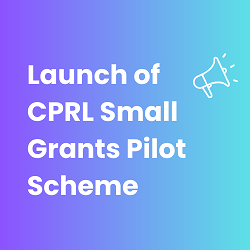You are here
- Home
- Research
- Theme 4: Health, wellbeing and resilience
- 4.02 Police wellbeing charities
4.02 Police wellbeing charities
Academic team: Dr Helena King, Dr Virginia Harrison, Prof Graham Pike
Policing partners: National and regional policing charities
Status: Complete

CONTEXT
The wellbeing of UK policing personnel is under increased scrutiny. Research has provided us with evidence showing the impact of organisational pressure, operational risks and complex demand. Police wellbeing support provided by employers and the NHS is supplemented by the third sector, and forces have a government mandated duty to signpost to these charities. However, research on the services provided by police charities is scarce. There are no published academic papers which provide evidence on the interventions provided by this occupational charity sub-sector.
RESEARCH AIM
This project aimed to gain a broad understanding of the role charities play in supporting police wellbeing in England and Wales. It obtained insight into i) the different types of charity, ii) their origins and approach to delivering services, iii) the current status of the sector, iv) the policing need for services, v) and challenges faced.
METHODOLOGY
Phase 1: Analysis of Charity Commission records (n38)
Phase 2: Semi-structured interviews (n16) with senior charity representatives
Phase 3: One day research workshop with charity representatives and academics ) (n12)
KEY FINDINGS
- Charity representatives perceive increased need for police health/wellbeing support to be tempered by psychological barriers which inhibit the ability of police to request statutory support. These barriers include:
- perception of in-force stigma
- fear of negative impact on career progression
- perception of reduced therapeutic value due to confidentiality and subjudicy
- sense of risk around disclosing police status in public medical/therapeutic settings
- The independent status of police wellbeing charities means they can break down many of the psychological barriers to receiving support. They exist solely to maintain or improve the health and wellbeing of current or former policing personnel and have no conflicts of interest.
- The oldest police wellbeing charities are over 100 years old and are rooted in Victorian philanthropy. Others were formed as a response to a tragedy. All have developed in symbiosis with police forces and the needs of individuals.
- Charities are organised, funded and administered in different ways. Large police wellbeing charities currently generate almost three-quarters of the total income for the sector. Most benevolent and welfare funds are micro or small sized charities.
- The approach taken by the sector overall is occupation-orientated, preventative, timely, bespoke, and confidential. Broadly, support dovetails with statutory provision.
- A diverse array of holistic services are provided across the sector, such as debt advice, peer support, research, training, grant and interest-free loan provision, physiotherapy, and psychological interventions (e.g. CBT, NLP, TRiM, clinical hypnotherapy, relationship counselling, psychotherapy, SFBT, and EMDR).
- Individual differences exist between charities according to geography, the occupational status/role of beneficiaries, and alternative support options. This means that there is unequal provision of health and wellbeing services to police across England/Wales, and the amount and type of support employees can access differs according to which force they are employed by.
Outputs
| Title | Outputs type | Lead academic | Year |
|---|---|---|---|
| A glimpse into the realm of police wellbeing charities | Final report | King, H | 2020 |
| Exploring voluntary sector provision of wellbeing support to policing personnel | Conference paper | King, H | 2019 |
News
- New course launched on “Understanding PCSO powers” 14th March 2024
- CPRL Collaborative dates for your diary 28th February 2024
- Government backs new pet abduction law in pet theft crackdown 8th February 2024
Upcoming Events
Online Seminar: Trust and confidence in policing
Wednesday, May 22, 2024 - 13:00 to 14:30
Online Membership Group Meeting
Thursday, June 13, 2024 - 10:30 to 12:30
